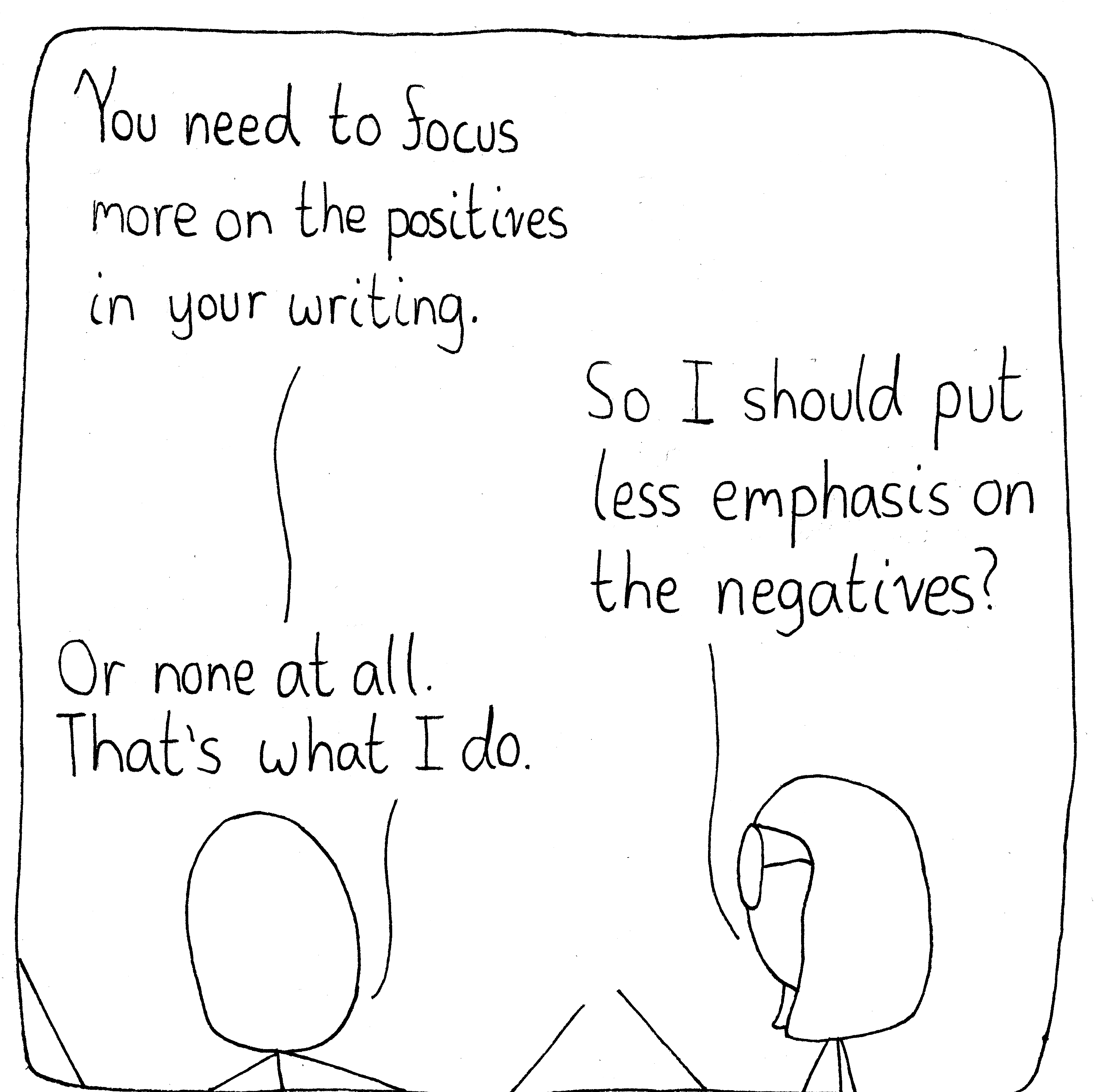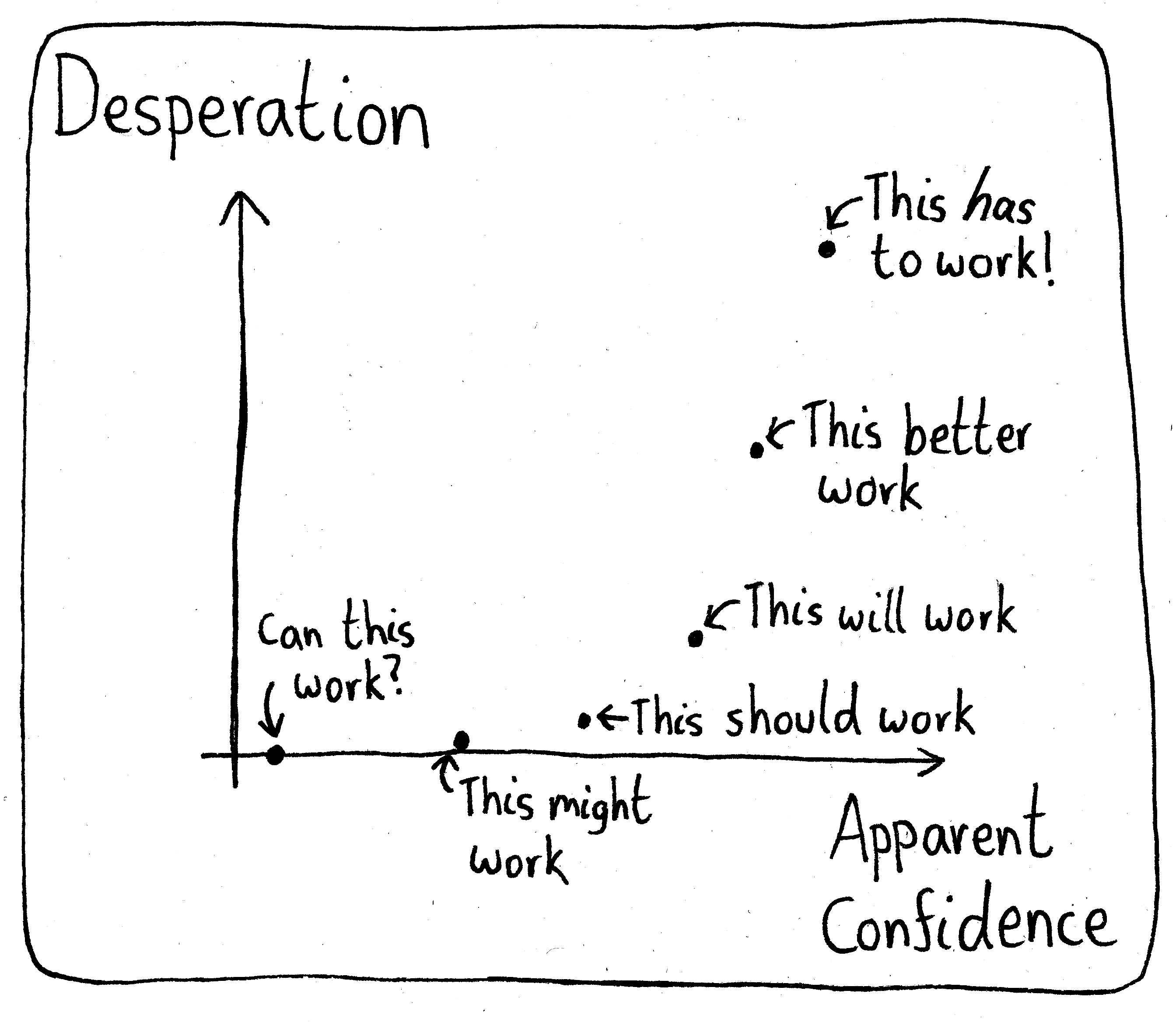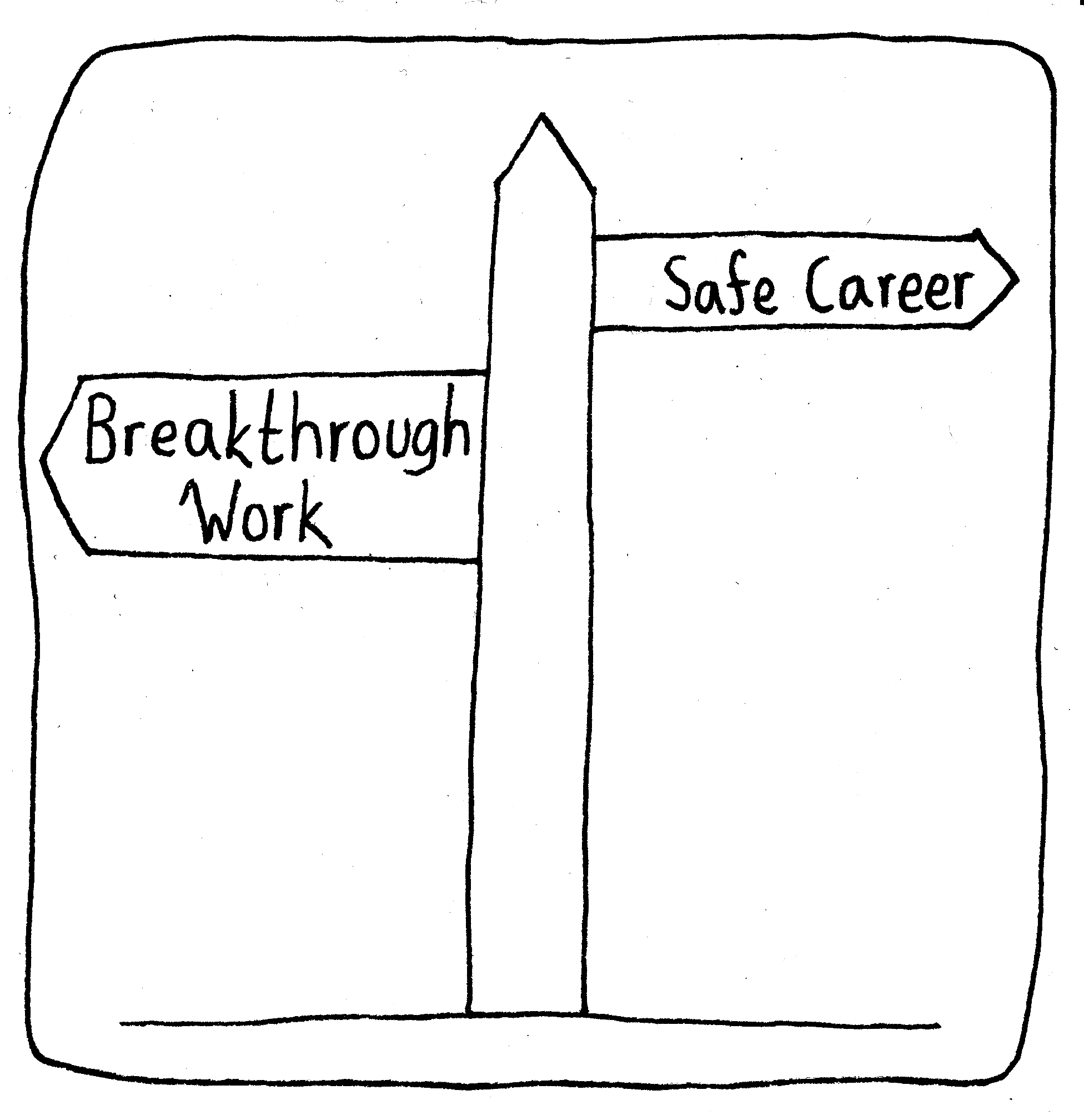 Comics about mathematics, science, and the student life.
Comics about mathematics, science, and the student life.
Jargon Meter

“I don’t understand. Nobody has said anything!”
“I think they just learned to tune you out.”
13 May 2022Sign Error

The transition happens even faster if you say, “I’ll let you figure out on your own where I made any mistakes.”
11 May 2022Significance

There’s a reason all of the early academic work in field X deals with simple models.
06 May 2022Project Timeline

Not shown: Extra pauses while people are confused, the many rewrites of the paper, bug hunting and data cleaning, and probably ten unique things that only showed up in this one project ever.
04 May 2022Positives

I can’t help but notice that many papers try to minimize the drawbacks of their research. Oh, I’m sure that’s just a coincidence.
29 Apr 2022Technical Details

As I’ve listened to more and more presentations, I feel as though I’m less and less willing to follow technical details in a presentation.
27 Apr 2022Questions and Answers

Graduate school: Where you learn that the only work is asking better and better questions.
25 Apr 2022

